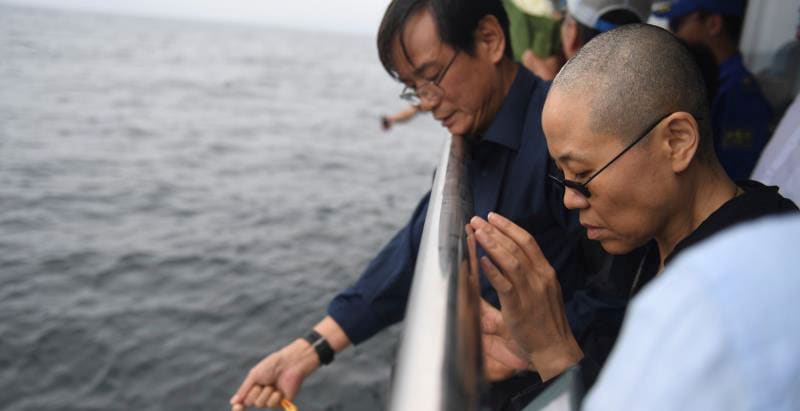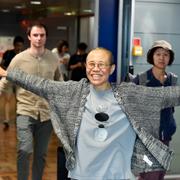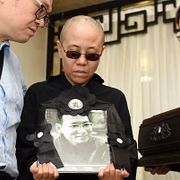
Vännen om begravningen: Regimen är gangstrar
Fredspristagaren och regimkritikern Liu Xiaobo begravdes till havs i dag, bara två dagar efter sin död. Nu riktar hans vänner hård kritik mot den kinesiska regimen för det hastiga förfarandet.
– Den här ondskan är bara för mycket. Regimen är gangstrar, säger Lius vän Liao Yiwu till The Guardian.
Konstnären Ai Weiwei, även han känd för sin kritik av den kinesiska regeringen, säger att Liu begravdes till havs för att hans anhängare inte skulle ha en plats att samlas på.
– Allt är ett spel. Sorgligt men sant, säger Ai Weiwei enligt tidningen.
bakgrund
Liu Xiaobo
Wikipedia (en)
Liu Xiaobo (Chinese: 刘晓波; pinyin: Liú Xiǎobō; 28 December 1955 – 13 July 2017) was a Chinese literary critic, writer, human rights activist and Nobel Peace Prize laureate who called for political reforms and was involved in campaigns to end communist single-party rule. He was incarcerated as a political prisoner in Jinzhou, Liaoning. On 26 June 2017, he was granted medical parole after being diagnosed with terminal liver cancer and he died at the hospital on 13 July 2017.
Liu rose to fame in literary circles with his literary critiques and he eventually became a visiting scholar at several overseas universities. He returned to China to support the 1989 Tiananmen Square protests and was imprisoned for the first time from 1989 to 1991 and again from 1995 to 1996 and he was imprisoned for the third time from 1996 to 1999 for his involvement in the democracy and human rights movement. He served as the President of the Independent Chinese PEN Center, from 2003 to 2007. He was also the president of Minzhu Zhongguo (Democratic China) magazine since the mid-1990s. On 8 December 2008, Liu was detained due to his participation with the Charter 08 manifesto. He was formally arrested on 23 June 2009 on suspicion of "inciting subversion of state power". He was tried on the same charges on 23 December 2009, and sentenced to eleven years' imprisonment and two years' deprivation of political rights on 25 December 2009.
During his fourth prison term, Liu was awarded the 2010 Nobel Peace Prize for "his long and non-violent struggle for fundamental human rights in China." He was the first Chinese citizen to be awarded a Nobel Prize of any kind while residing in China. Liu is the third person to have been awarded the Nobel Peace Prize while in prison or detention, after Germany's Carl von Ossietzky (1935) and Burma's Aung San Suu Kyi (1991). Liu was also the second person to have been denied the right to have a representative collect the Nobel Prize for him and to die in custody, with the first being Ossietzky who died in Westend hospital in Berlin-Charlottenburg after being detained in a Nazi concentration camp.
Omni är politiskt obundna och oberoende. Vi strävar efter att ge fler perspektiv på nyheterna. Har du frågor eller synpunkter kring vår rapportering? Kontakta redaktionen


